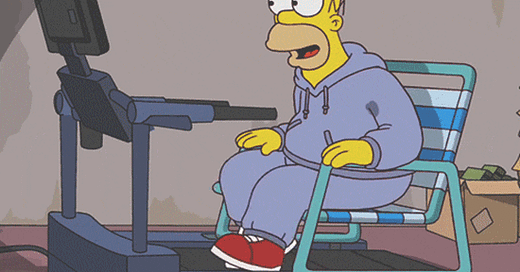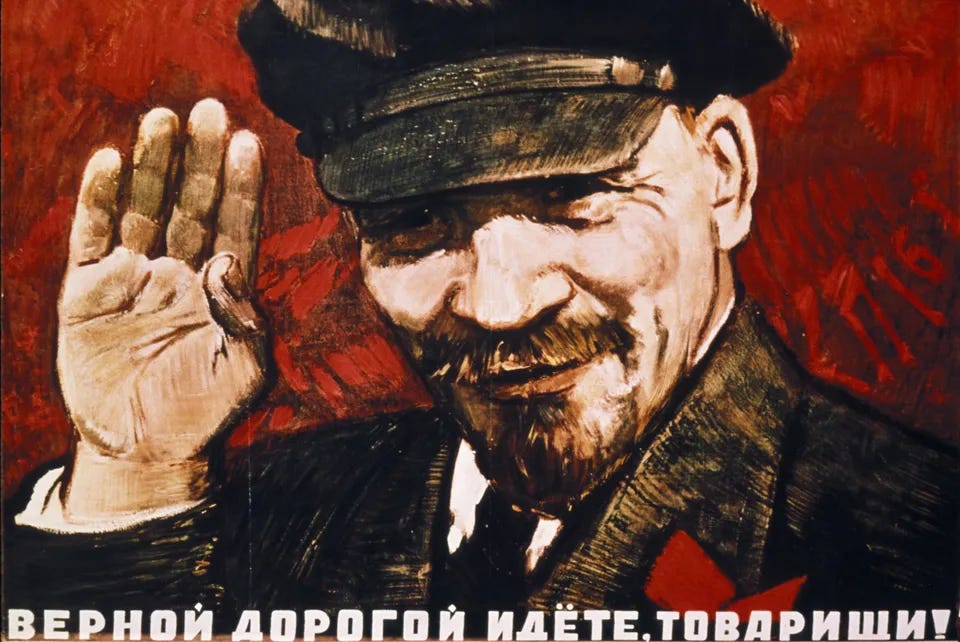Give Difficult Books a Chance
Vote with your wallet. Follow the bibliography thread. Actively seek difficulty.
Gymgoers know the maxim: “No pain—no gain.” However, I discern progressively fewer opportunities to lift intellectual weights in the modern literary world. Manuscripts undergo severe selection and editing processes to be “dumbed down,” becoming one-idea books or those abiding by the “Creativity Curve”1, where ideas too novel or rocking the boat too much don't make it through, let alone finding their way to the storefront.
My minimalistic traveller lifestyle doesn’t permit physical hardcover books. But I’ll always pop by a bookstore whenever I see one, only to feel like I’m in The Matrix: déjà vu upon déjà vu—the same books at the same best spots staring at me the way omnipresent communist slogan billboards used to. After a while, many of these books will find their way to the discounted price shelves along with Dan Brown’s. Those books were written by lazy journalists who never dug deeper than a few popular blog posts by fellow lazy writers. The self-help genre is leading the non-fiction garbage parade.
Beautiful Amazon or Barnes & Noble stores in New York would showcase titles I’d hear about from peers and online reviewers. It feels like there’s only a handful of books we all read and recommend to each other. You realise how much of a tastemaker popular retail platforms and influential publishing houses are. We think we chose our reads, but that’s an illusion fabricated from familiarity bias and skilful retargeting.
You can hardly blame them—capitalism won, and one must follow Adam Smith's guidelines. But the reader has the power to vote with his wallet. Organic food is everywhere precisely because it’s a massive cash cow. By analogy, challenging, “nutrition-packed” reads could become as ubiquitous if the consumer demonstrated an appetite for them. The only thing we’ll achieve by buying what’s on the shelf front and centre is more of the same light reading.
We pat ourselves on the shoulder for reading and, therefore, becoming smarter, but all we do is buy a sugar-packed cereal bar with an athlete depicted on it.
Actively Seek Difficulty
One can’t expect any improvements in creative output when based on poor-quality input. Worthy things in life require us to exert energy and dedicate time. We have to work for them. The feeling of swimming against the tide is generally a good omen—it’s what growth feels like.
Reading is still considered an intellectual activity. However, over the decades, it has become as difficult to avoid junk books as it is to avoid junk food—ubiquitous, affordable, quick, instantly gratifying, and mostly empty—contentless content.
To keep reading beneficial for the brain, the material should be at the right level of complexity to make it through yet feel “comfortably uncomfortable,” much like physical stretching.2 There’ll be plenty of high-level introductory material when you’re new to a specific topic, but separating the signal from the noise gets harder as we become more knowledgeable. Yet that’s precisely what we should do.
Processing Fluency
People who liked A also liked B. We don’t mind “more of the same” because, as humans, we find it comforting. We appreciate the people we see the most, not the other way around. We enjoy listening to radio hits because we hear them repeatedly, not vice versa. Like post-IPO stocks performing better, so do best-selling books whose popularity feeds back onto itself.3 You’ll keep getting more of what you already consume with occasional “mutations” introduced to discover more sales funnels you could slip into.
I’m looking at bibliographies and notice many references to YouTube videos and blog post remixes. As Malcolm Gladwell said in his interview with
, most journalists don’t read the court transcript before writing about it.There’s no denying that we live in an information-overflow age. However, the biggest issue is not the amount of information; it's the parroting. The biggest hurdle every serial reader goes through is dehydrating diluted word counts. And I’m not sure generative AI has gotten to the point where it can accurately summarise it for us.
I’m sure we’ll get there, though. Readwise, for example, has the ghost reader feature that turns a long read into its Blinkist equivalent. Moreover, you can use the built-in text-to-speech feature to make it even more Blinkist-like.
How to Spot Good Books?
Books that undergo continuous revisions and are repeatedly re-edited are often the keepers. Yes, the world needs more profound research and novel ideas. But even if nobody ever invents anything, the authors’ unique perspectives or connections to other disciplines that were always there but remained hardly noticed are sufficiently valuable to immortalise them in writing.
What if we took the entirety of Google Books and turned it into a knowledge graph, where books would be nodes and citations would be relationships between them? A high-level view of such a graph should theoretically reveal influential hubs most would be referencing. Theoretically, the network effect should bloat best-seller hubs. Something tells me that the big dots will perfectly align if we overlay this graph with one of the authors’ online popularity.
Traversing the graph from the outbound links of those hubs towards the origin of the information should reveal less-known, less easily digestible sources. Still, they’d be much better candidates for your next read than the hubs.
As in mathematics, the longer you propagate the error at each step of the solution, the more the error gets amplified. Similarly, the further we get from the original thought, the more warped it gets until it drowns in the noise; every storyteller inevitably mixes in or evolves into a completely different beast altogether.
In other words, follow the bibliography thread.
Non-Fiction, But Not Only
Books educate or entertain us. The above rant might sound mainly applicable to non-fiction, which is supposed to educate. On the other hand, fiction can be easily digestible—well… arguably.
Fiction’s primary goal is to entertain, indeed. But take Russian classics, for example. You need to engage with the story, protagonists and antagonists, understand the underlying historical context, and think profoundly about profound topics spread thin between the lines. It’s a very active type of reading that involves earmarking, marginalia, notebooks, and encyclopedias. It gets pretty close to reading complex non-fiction.
The summaries I relied on at school had to mix in tons of supplemental information to get the book's point across. Perhaps this was beyond the comfortable discomfort mentioned above for a young, inexperienced reader. However, now I understand why these essential classics remained part of the curriculum despite complaining cohorts of students for so long. Someone, somewhere, understood the importance of not dumbing things down. They wanted us to improve through reading difficult books.
Nassim Nicholas Taleb on Reading
Nassim Nicholas Taleb is considered one of the most substantial contemporary writers, even by those producing light-weight content.4 Therefore, I found it à propos to finish this issue with a few of his tweets on reading. I think they’re timeless.
A good book gets better at the second reading. A great book at the third. Any book not worth rereading isn’t worth reading.
I follow the Lindy effect as a guide in selecting what to read: books that have been around for ten years will be around for ten more; books that have been around for two millennia should be around for quite a bit of time, and so forth.
Drink old wine. Read old books. Keep old friends.
Never read a book that can be adequately summarized.
Never read a book you would not reread.
No book that can be shortened survives.
Books that endure don't look like good books; they are almost always very poorly written, but address fundamental topics.
What matters for a book is depth and relevance, which is extremely rare. Plus internal, not external coherence. Books that have them don't need the cosmetic shit.
To become a scholar, spend decades reading 30-40 h/week.
Books are not read by the majority because they read the Internet, which is like junk food for the mind.
To see if a book is real, ask 10 people of different backgrounds & professions to summarize it. If the summaries are similar, the book will not survive as it can be shortened to a journal article.
The more the summaries diverge, the higher the dimensionality of the book.
Avoid the intermediary, when possible.
Gannett, A. (2018). The Creative Curve: How to Develop the Right Idea, at the Right Time. Random House.
Wilson, R. C., Shenhav, A., Straccia, M., & Cohen, J. D. (2019). The eighty five percent rule for optimal learning. Nature communications.
https://en.wikipedia.org/wiki/Processing_fluency
Cole, N., Lochhead, C., & Yoon, E. (2022). Snow Leopard: How Legendary Writers Create A Category Of One. Nicolas Mather.







